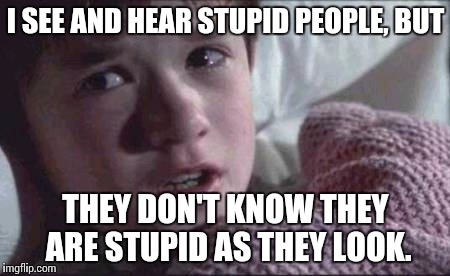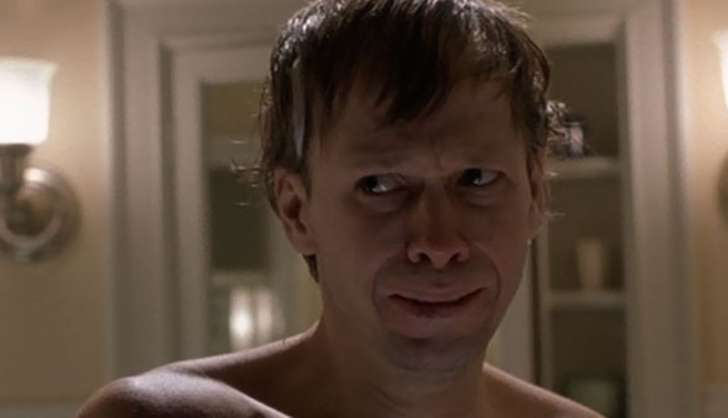The Sixth Sense: It's not always a bad thing if you see dead people.
Remember the "I see dead people" meme? The one that died along with the outdated 2009 memes like the "troll-face" or the "nyan cat"?

Well, today's movie review will be about the source of the meme, one of M. Night Shyamalan's most famous works: The Sixth Sense. A supernatural horror film that looked more drama than horror, famous for its surprise twist ending. The plot revolves around Malcolm the child psychologist helping Cole the disturbed and isolated child overcome his problems and paranoia, while subsequently learning more about the world (that ghosts were real) and to realize and accept the fact that it's time for himself to move on, for he is dead and he didn't realize it.

In this film we follow the misadventures of child psychologist Malcolm, and in the beginning of the film the audience were greeted with the gruesome scene of Malcolm's murder perpetrated by Vincent Gray, one of Malcolm's former patients whom he failed to cure. Vincent had suffered hallucinations, and later on in the movie it will be revealed that the supposed hallucinations were his sixth sense in play, giving him the ability to see and hear ghosts and spirits. After ranting about how Malcolm had failed him, Vincent shot Malcolm before committing suicide.

After Malcolm's death, he himself didn't realize he was dead, and continued to walk on the earth , thinking that the gunshot wound had healed up nicely. He never noticed the weird details that may suggest that he doesn't exist on this earth after he's been murdered; people never talked to him or acknowledged his presence save for Cole who had the sixth sense, and his own wife ignoring him for the past few months didn't tip him off either.
While from the plot point of view the film suggested that he as a ghost can't keep track of time, from the psychological perspective Malcolm is the symbol of individuals undergoing one of the psychological defense mechanisms: isolation. During isolation, an individual will shut out threatening thoughts or ideas, with mental gaps form between trains of thought (Baumeister et al., 1998). Using Malcolm as an example, the threatening thought is his death, and the mental gaps were the gaps in time that he can't seem to follow up, causing dissonance in his perception and causing him to not realize that he's being downright ignored by other people or why he seemed distant with his home life, even forgetting the correct time and location of his marriage anniversary.

However, it all got resolved in the end when his business, which is curing Cole's paranoia by teaching him to help the ghosts to make up for the guilt of not being able to help Vincent and telling his wife that he loved her, was finished. He accepted his death, and left the world in peace.
While this film may be a horror film, it actually was closer to supernatural drama (emphasis on drama) than horror in my opinion. Sure, the appearances of the ghosts were designed to be terrifying, but there is no element of danger in it enough to call it horror. The ghosts in the film was never supposed to be viewed as antagonists, as they're all playing the role of the victim. Instead of playing the "malevolence of evil spirits" trope the audience was instead served with a helping of "Spirits are sad and misunderstood" trope, giving a fresh perspective on how we perceive the supernatural, making this film even more interesting and impressive.

It's actually quite strange that humans, who are supposed to be hardwired to avoid things that cause a perception of danger or fear, loved the genre of horror. Some might suggest it was due to the process of catharsis (Bohart, 1980), where human emotions that cannot be expressed are bottled up which causes internal pressure which subsequently creates mental problems unless there's a form of release, and horror films allowed the expression of said emotions such as fear, rage and disgust through the physical reactions of screaming, crying or making disgusted expressions when a horror scenes is displayed.
Overall, the only comment I have for this movie is: Go watch it. Repeat if necessary. Witness the most heartwarming horror film, and should you watch it with a significant other (if you have one that is), let the film serve you as a reminder to cherish your own life with care so you won't accidentally leave your loved ones and cause pain to them.

References:
BOHART, A. C. (1980). TOWARD A COGNITIVE THEORY OF CATHARSIS. PSYCHOTHERAPY: THEORY, RESEARCH AND PRACTICE VOLUME 17, #2.

Well, today's movie review will be about the source of the meme, one of M. Night Shyamalan's most famous works: The Sixth Sense. A supernatural horror film that looked more drama than horror, famous for its surprise twist ending. The plot revolves around Malcolm the child psychologist helping Cole the disturbed and isolated child overcome his problems and paranoia, while subsequently learning more about the world (that ghosts were real) and to realize and accept the fact that it's time for himself to move on, for he is dead and he didn't realize it.

In this film we follow the misadventures of child psychologist Malcolm, and in the beginning of the film the audience were greeted with the gruesome scene of Malcolm's murder perpetrated by Vincent Gray, one of Malcolm's former patients whom he failed to cure. Vincent had suffered hallucinations, and later on in the movie it will be revealed that the supposed hallucinations were his sixth sense in play, giving him the ability to see and hear ghosts and spirits. After ranting about how Malcolm had failed him, Vincent shot Malcolm before committing suicide.

After Malcolm's death, he himself didn't realize he was dead, and continued to walk on the earth , thinking that the gunshot wound had healed up nicely. He never noticed the weird details that may suggest that he doesn't exist on this earth after he's been murdered; people never talked to him or acknowledged his presence save for Cole who had the sixth sense, and his own wife ignoring him for the past few months didn't tip him off either.
While from the plot point of view the film suggested that he as a ghost can't keep track of time, from the psychological perspective Malcolm is the symbol of individuals undergoing one of the psychological defense mechanisms: isolation. During isolation, an individual will shut out threatening thoughts or ideas, with mental gaps form between trains of thought (Baumeister et al., 1998). Using Malcolm as an example, the threatening thought is his death, and the mental gaps were the gaps in time that he can't seem to follow up, causing dissonance in his perception and causing him to not realize that he's being downright ignored by other people or why he seemed distant with his home life, even forgetting the correct time and location of his marriage anniversary.
However, it all got resolved in the end when his business, which is curing Cole's paranoia by teaching him to help the ghosts to make up for the guilt of not being able to help Vincent and telling his wife that he loved her, was finished. He accepted his death, and left the world in peace.
While this film may be a horror film, it actually was closer to supernatural drama (emphasis on drama) than horror in my opinion. Sure, the appearances of the ghosts were designed to be terrifying, but there is no element of danger in it enough to call it horror. The ghosts in the film was never supposed to be viewed as antagonists, as they're all playing the role of the victim. Instead of playing the "malevolence of evil spirits" trope the audience was instead served with a helping of "Spirits are sad and misunderstood" trope, giving a fresh perspective on how we perceive the supernatural, making this film even more interesting and impressive.

It's actually quite strange that humans, who are supposed to be hardwired to avoid things that cause a perception of danger or fear, loved the genre of horror. Some might suggest it was due to the process of catharsis (Bohart, 1980), where human emotions that cannot be expressed are bottled up which causes internal pressure which subsequently creates mental problems unless there's a form of release, and horror films allowed the expression of said emotions such as fear, rage and disgust through the physical reactions of screaming, crying or making disgusted expressions when a horror scenes is displayed.
Overall, the only comment I have for this movie is: Go watch it. Repeat if necessary. Witness the most heartwarming horror film, and should you watch it with a significant other (if you have one that is), let the film serve you as a reminder to cherish your own life with care so you won't accidentally leave your loved ones and cause pain to them.

References:
Baumeister, R. F., Dale, K. & Sommer, K. L. (1998). Freudian Defense Mechanisms and Empirical Findings in Modern Social Psychology: Reaction Formation, Projection, Displacement, Undoing, Isolation, Sublimation, and Denial.
Journal of Personality. 66(6):1081 - 1124.
DOI: 10.1111/1467-6494.00043
BOHART, A. C. (1980). TOWARD A COGNITIVE THEORY OF CATHARSIS. PSYCHOTHERAPY: THEORY, RESEARCH AND PRACTICE VOLUME 17, #2.
Comments
Post a Comment